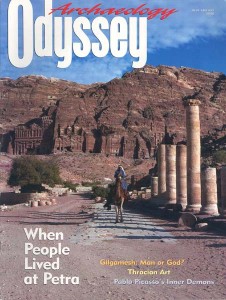Origins: The First Act
What do Shakespeare, Ibsen and Hollywood have in common? An irredeemable debt to ancient Greek theater.
In 1872 the young Friedrich Nietzsche burst onto the German intellectual scene by publishing The Birth of Tragedy out of the Spirit of Music. Others had speculated on the origins of ancient theater, starting with Aristotle in the fourth century B.C., but no one before Nietzsche had conceived of it as a “birth,” and a metaphysical one at that.
For Nietzsche, Greek tragedy was the child of a strange marriage between characteristics of the Greek gods Apollo (associated with singing, poetry and the arts) and Dionysus (the god of wine, capable of deep compassion and terrible cruelty). On the one side was the Apollonian spirit of distinct individual existence (the egoistic “dream” that each of us uniquely matters); on the other side was the Dionysian “ground-swell of Being” (those impersonal and irresistible currents of life and death, leading to oblivion). Frequently in ancient Greek tragedy, the hero dies but the chorus lives on—suggesting, to Nietzsche, the universal truth that the individual emerges only briefly, then sinks back into the all-consuming reality of the life-force, no longer capable of self-important dreams.
Already a library member? Log in here.
Institution user? Log in with your IP address.

